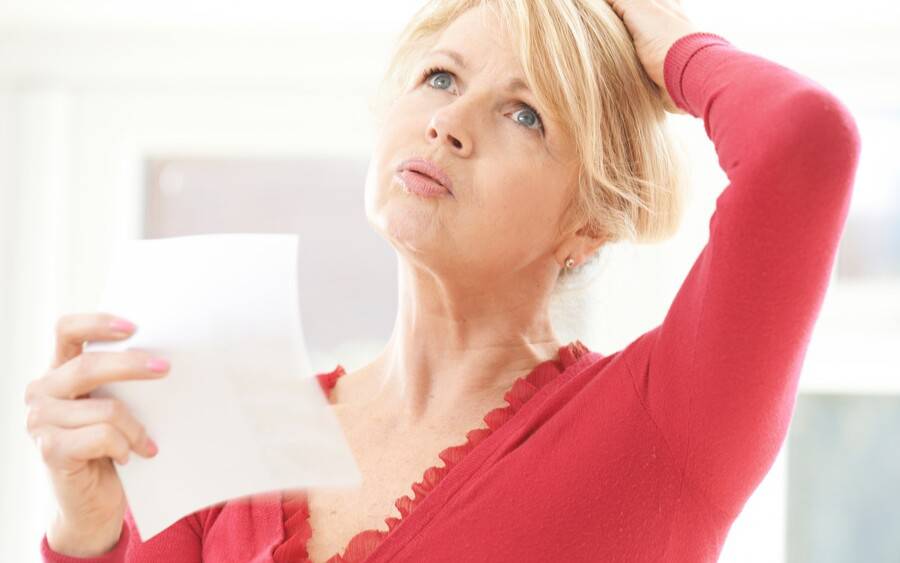7 Commonly Asked Questions About Menopause
Answers to questions about hot flashes, sex drive, osteoporosis

Answers to questions about hot flashes, sex drive, osteoporosis
Menopause is a normal part of every woman’s life. But for many women, it is not an easy transition.
Sometimes called “the change,” menopause marks the time when a woman stops having her menstrual period and can no longer get pregnant. Every woman’s experience with menopause symptoms is different, however.
“Most women experience some kind of symptom related to hormonal changes, but the type and severity vary,” says Katrina Kelly, MD, an OB-GYN at Scripps Clinic Rancho Bernardo.
The average age for menopause in the United States is 52, according to the US Office on Women’s Health. But it can occur sooner or later, depending on a woman’s general health and family history.
Knowing the facts about menopause can help you manage symptoms and make the transition easier. The following are frequently asked questions about menopause from patients in this age range.
1. What are the symptoms of menopause?
Menopause happens when the ovaries stop making estrogen, a hormone that helps control the menstrual cycle. A woman reaches menopause officially when she has not had a period for 12 months in a row.
The signs and symptoms of menopause usually begin years before the final menstrual period. Perimenopause, as it is known, is the long transition to menopause when the levels of estrogen begin to fluctuate, and symptoms can arise.
Irregular periods and hot flashes are common. Other symptoms include night sweats, sleep problems, mood swings, joint aches, palpitations, weight gain and vaginal dryness. On average, women are in perimenopause for four years before their periods stop.
2. What can I do to relieve hot flashes without drugs?
Some women find dressing in layers, carrying a portable fan and staying well-hydrated can be helpful for relieving hot flashes. Avoiding alcohol and caffeine can also make a difference if they trigger hot flashes.
Some medicines for high blood pressure and depression can also be used to limit warm flushes and sweating.
Over-the-counter supplements are often advertised to relieve hot flashes. “But it’s important to talk to your doctor first since they can have an effect on other medication you may be taking or other medical conditions that you have,” Dr. Kelly says. “Your doctor can recommend the most helpful options for you based on your symptoms and medical history.”
3. Is hormone therapy right for me?
Hormone therapy can help relieve symptoms, such as hot flashes and night sweats, especially for women going through menopause in their 50s or younger.
For women who have had a hysterectomy, which is the surgery to remove the uterus, estrogen alone is given.
Estrogen and a hormone called progesterone are given to women who still have their uterus. Progesterone helps reduce the risk of uterine cancer.
These medicines can be used as pills, patches, creams, gels or vaginal preparations in ring, cream, or pill form. There are risks and benefits to hormone therapy that you can review with your physician.
4. Does menopause cause moodiness and depression?
It is not unusual to have mood alterations during the time of menopause. Your body is experiencing many changes that your mind must process.
Depending on your symptoms, simple diet and exercise programs can help. Some women will see improvement after counseling with a therapist or psychiatrist or find short-term use of medicines helpful in stabilizing their moods.
Your physician can help you decide which path may give you the most success.
5. Does menopause affect your sex drive?
Decreased libido can have numerous causes. Changes in a woman’s body, lower hormone levels and vaginal dryness (which can cause pain during sex), can all contribute.
Open communication and relationship building are always an important part of resolving this problem. After your physician has ruled out any health problems, vaginal moisturizers and lubricants can be helpful. You may also discuss topical or oral medications with your doctor.
6. Can menopause cause osteoporosis?
A small amount of bone loss is normal after age 35 for both men and women. But women can lose bone more rapidly during menopause due to less estrogen. If too much bone is lost, it can increase the risk of osteoporosis, which increases the risk of bone fracture. It’s important to monitor this with your physician carefully.
7. Does very woman get menopause symptoms?
Some women have little or no symptoms at all. While they may feel lucky, every woman who reaches menopause should still schedule an annual visit with their doctor and maintain and monitor their health since menopause is also part of the normal aging process.
A healthy lifestyle can offer major benefits to women going through menopause. Eat healthy. Make sure to include enough calcium and vitamin D in your diet to help maintain bone strength.
Regular exercise slows down bone loss and improves overall health. Federal guidelines recommend adults participate in muscle strengthening activities at least twice a week, and moderate aerobic activity for at least 150 minutes per week or 75 minutes per week if done vigorously.
“Remember, your doctor is your best resource for questions and concerns about menopause. Talk to your doctor about what’s on your mind, review your individual health history and together the two of you can help make this a healthy change,” Dr. Kelly says.